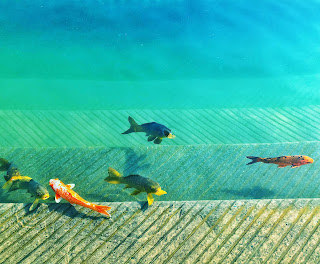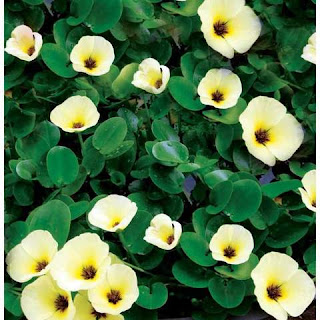Through the haze, you could only see hazy silhouettes of your fish, sort of. The very first point to remember is that your water isn't genuinely green; instead, you're staring at millions of single-celled algae floating in it. Bacteria is not necessarily negative.
Tips To Maintain Fish Pond At Home
Your Pond Should Be Aerated
Aerating or agitating the water in your pond, whether a koi pond, a small lake, or a bigger pond, will help maintain it clean. Why is circulation important? Let's take a glance over what occurs when the water in your pond turns to stagnate.
This particular quantity of oxygen is present in pond water. Whenever a pond becomes stagnant, oxygen rises to the surface. The groundwater flow layer loses oxygen, aerating the pond water with significant support to the bottom layer and guarantees that all of the water has adequate oxygen. Low oxygen levels frequently result in fish death, which may be avoided by aerating the water.
Plant Water Plants
Spring and summer is the most incredible opportunity to announce new plants since the temperature is high and robust enough to support vigorous plant development. You can contemplate planting oxygenators, lilies, marginals, floaters, and marshes, among other plants.
Plant growth can indeed be accelerated with a proper fertilizer applied every five weeks. Because particular aquatic creatures eat the plants, maintain them as pleasant as possible. Toxic fertilizers and inorganic insecticides should not be used.
Remove Pond Trash Until It Has Time To Decompose
Your pond skimming will eliminate the majority of the material from the top of your pond, and you may have used a pond net to skimming leaves and tiny sticks before they sink to the pond's base and degrade. The concentration of salts in your pond might rise due to decaying debris, fish excrement, and new fish food.
Ammonia may be hazardous to your goldfish and, therefore, should be treated as soon as possible. If your fish are jumping out of another water, you most likely have an ammonia surge, which can occur after an environmental treatment. You may get an ammonia test kit from your local pet and aquarium store, and if the levels become too high, cleanse your pond water using Ammonia Neutralizer.
Aquascape Beneficial Bacteria, for example, helps maintain your water level wholesome and straightforward for your extended surfaces companions. You must install an Automatic Dosing System to administer healthy bacteria electronically and other remedies to your pond to aid in the breakdown of debris and the maintenance of a normal denitrification process. This whole process is also beneficial for fish pond maintenance.
Grow the Correct Plants
Plants may be a fantastic addition to any pond. You may not know that plants may help keep the water temperatures lower during the hottest months of the year and offer much-needed cover for fish and other aquatic organisms. Incorporating floating plants is an excellent alternative.
These are mostly not attractive, but they help limit the growth of algae and consume part of the minerals that algae require to thrive. Certain plants even contribute oxygen to the water in your pond. We strongly advise you to consult with a pond specialist about the best sorts of plants for your pond.
Limit the Growth of Algae
Algae are helpful in a gardening pond. However, they may become a significant issue if allowed to develop abundantly. Because these non-flowering plants provide food for aquatic creatures, it is not advised that they be removed entirely. You may utilize both natural and artificial techniques to manage these micro-plants.
Another natural method is to produce aquatic plants that can contend for nutrients and other elements with the micro-plants. Plants that require a lot of nutrients, including lettuce and tulips, should be introduced. Cover plants, such as lilies, can also reduce the quantity of sunlight that reaches the algae.
Reduce Your Consumption Of Fish Food
 |
Overfeeding your fish will not make them fat, but it will ruin your pond. Aquatic creatures such as koi and goldfish may primarily subsist on mosquitos and many other pests that would otherwise infest your water fountain. Feed as much as your fish can consume in a couple of minutes when supplementing the diet with additional flakes or pellets. You're exceeding it if extra food is floating approaching your skimmer after a feed.
What is the significance of this? The amount of food will decompose, producing a terrible habitat for your fish and a better environment for the toxins that will contaminate your water and perhaps kill your pond wildlife. These pond water treatments will surely help you to keep your pond clean.






